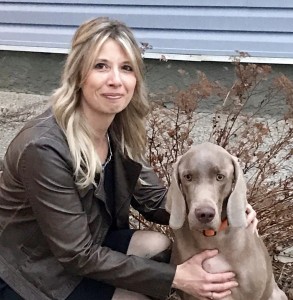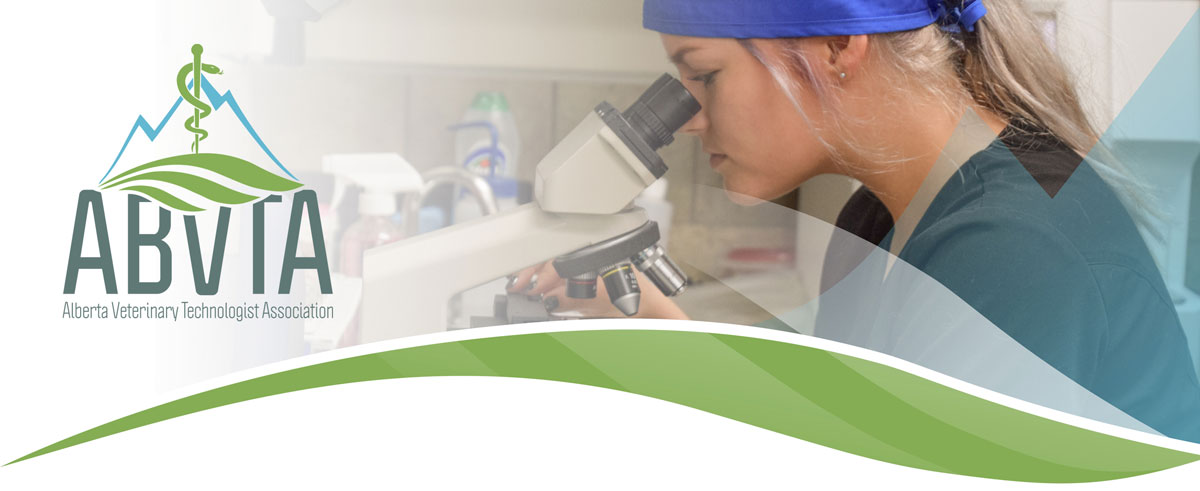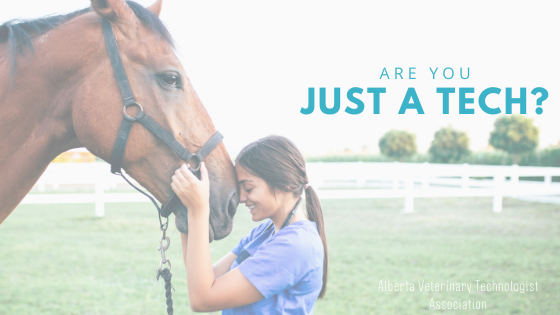“Oh, I’m not the vet, I’m just a tech.”
How many of us have spoken this phrase? How many times have we unintentionally belittled ourselves — and our profession — with those four little words? They don’t sound harmful. I would commonly follow that up with “you know what I mean…”, but what exactly did I mean? Did I really mean that I am an RVT, an important member of the team? I didn’t. Deep down, I meant “I am a cop out. I ran away from vet school because I didn’t think I was smart enough. I took a path that seemed easier, and now I feel unequal to those around me”.
All of this internal dialog was running through my head and my lack of confidence would always find little ways to creep through the cracks in my professional facade of professional contentment. As techs, we are educated in many aspects of the veterinary medical field. Unlike human nurses, our daily work, continues to require the use of multiple disciplines in a single 8-hour shift: triage, laboratory, anesthesiology, radiology, medicine, surgery, nutrition, along with caregiver and janitor. There is nothing “just” about the daily tasks of a vet tech. Yet, that feeling of inadequacy, of having settled for second best, or missed opportunity can continue to creep in. The determinant of this statement is when you qualify your role in your workplace as “just a vet tech” you degrade all the information you have shared with your client, or will share with future clients or colleagues. By valuing yourself as “just”, you are instilling not only a lack of trust between yourself and your client, but worse, you reconfirm that lack of trust in yourself as well.
Creating a Road Map
If our current tasks and past accomplishments don’t make us feel adequate, maybe we need to change course. But how do we take those first steps to become more than we feel we are? How do we even choose a direction?
First step: “Have the right mindset”. When we attempt to do our best every day, in the tasks we are assigned, we are already better than adequate. The job of a tech demands an extensive skill set, in addition to being mentally and emotionally draining. If you get through each day with check marks covering most of your “to do” list, believe you are worthwhile. The real question is, do you feel like you have more to offer? More to learn? More to experience?
Second step: “Find your passion”. We hear and read this from the self-help sector all that time. But what would it mean for you? Is there one thing that you love to do above anything else? Is your day mundane, except when you are doing that task? For some people this is the case, and it makes it easy to choose a direction. Some have not experienced enough of life to know yet what truly excites them. They are passionate about everything! To see something new, to learn an interesting fact, is all it takes to lift their spirits and drive their passion. This is an amazing gift, except how does that person find their one true passion when everything is exciting?
This brings us to the third step: “Evaluate your life”.
What can you realistically do at this moment to focus on a passion? What do you have access to? Are there financial or logistical obstacles? Do you have commitments that must be completed, or are you able to free yourself of some of your current obligations? There will most likely be sacrifices on the journey to self-development, and it is important to make these decisions consciously, so that you don’t later come up against feelings of failure or guilt when you are unable to do it all.
Finally: “Map out a timeline ”. Outline what is needed prior to starting the journey —; any technical requirements you need to fulfill, money you need to access, mentors you need to bring on — before you can begin. Then, sketch out what the actual journey will look like, day in and day out, week by week, or month by month. This step-by-step document can be complicated and time-consuming to complete, but by giving yourself a break down you may be able to visualize challenges better, thereby maintaining motivation as time goes by. And more importantly, you know that if you just stick to the timeline and task list, you will reach your goal. Don’t forget to schedule recuperation time in the outline for when a big or especially difficult challenge is completed. When you finally complete all goals, exams or deadlines, your body’s adrenal depletion will scream out for a break. Plan on some time to relax and recover.
Enjoy the Journey
Once you have your road map and know exactly where you want to go and how to get there, let the journey begin. Know that there will be days or even a week or two when you just need to stop. Have compassion for yourself. If you find you can’t focus, then stop reading; retention is unlikely. Try tomorrow. Read about what you see, and experience. When a pancreatic dog comes into the clinic, read about all things pancreatic that night after work. Apply that practical, visual knowledge to something you
can now interpret intellectually. Linking your practical experience to your intellectual learning will make it so much easier to retain the knowledge, and to think of ways to apply what you are learning in books, to your practical work.
Know that while you may feel inadequate at many points along the way, remind yourself often that this is a journey. Some of the best journeys take a long time, and you will experience anticipatory excitement, frustration, short-term disappointments — basically a roller-coaster of emotions. But over time, you will see positive growth; Remember: if you knew it all to begin with, then you wouldn’t feel the need for personal growth. So expect to struggle; struggle is normal, and means that you are working at getting better.
Find a support team, some like-minded people who are involved in, or have experienced the same type of journey. Listen to their stories, share yours. Trust in yourself and allow yourself the chance to try. Have small failures and big accomplishments. Keep looking at the big picture and keep pushing forward, no matter how many obstacles you encounter.
There are many options for self growth, in addition to having a big, defined goal. Developing a social media outlet for your clinic can be an inexpensive way to take a journey with your clients. Offering educational posts, sharing accurate information and creating trust are fantastic ways for techs to focus on their careers. Share cases with peers, and showcase the important role you can play in the well-being of your clients’ and their pets’ lives. Write an article, or offer to give a lecture about something that is important to you. Share your article or lecture internally first, to get valuable feedback and build trust with your team. Then start sending that article out for publication, or offer to get it published or hold in -clinic seminars for clients, and ask to be a speaker. Volunteer locally, nationally, and internationally.
There is so much to learn from animals in shelter or evacuation settings. Rabies or spay/neuter clinics can increase your exposure to animal behaviour, handling, surgical and anesthetic techniques, thus increasing your knowledge base and confidence. Take a course through a university or college. If you need help staying on task, this is a good way to get some continuing education with a timeline and goals already pre-set for you. Become a Veterinary Technician Specialist (VTS). Take that leap, and push yourself to achieve a higher level of RVT knowledge and experience. While this journey does require self discipline and a good amount of internal drive, there are mentors and ambassadors that are willing to answer questions and offer encouragement. You will be more competent at the end of the program, and able to offer your workplace a more educated tech; As a VTS (Nutrition) I can offer nutritional consults, which will increase our pet food sales, resulting in profit for my clinic. A rebate three times higher than the previous year is hard for an owner to ignore; a raise or bonus is a valid expectation.
Opportunities to work at professional facilities that appreciate these skills, giving lectures, writing articles, publishing research or books… these are only a few of the options a VTS certification will make available to you. The journey may seem long, two years from letter of intent to exam., however, the VTS program allows you adequate time to focus on a specialization, and to perfect your skills and knowledge.
Every journey has an end. When I got the news that I had passed the final exam for my VTS (Nutrition) specialty, my confidence sky-rocketed and I could not stop smiling. I finally felt a true a real sense of pride in my chosen career, and a new-found belief in my own my ability to complete any goal I set for myself.
Then.., a crash of emotional exhaustion. Recuperation time is absolutely essential, both during, and at the end of your efforts to reach a big goal.
Take a day, or a week, or more.; Throw out the flash cards, take a break from doing calculations, or reading articles. Practice some meditation and clear your mind, take long walks in the sunshine, so that you are ready for all the new challenges and opportunities that are sure to come your way now that others have seen what you are capable of!
The most important thing I learned on my journey, is that I am not, nor was I ever, “just a vet tech”. I am proud of the career I have chosen, and proud of the impact I have on the people and animals I help. If you don’t feel that way, know that you can. Strive for a growth-minded life, knowing that you are never “just” anything. Support yourself, be your true self, and have pride in all that you are.
Robin Saar RVT, VTS (Nutrition)
“Nutrition is part of every pet, every day of their life”
Robin graduated from the now TRU University in 1996, with a diploma in Animal Health Technology. She worked as an RVT in small and mixed animal practices until 2009, when she changed paths to manage a large canine, feline and equine boarding facility. During 2001-2014, Robin bred and handled International Champion Chihuahuas and invested her free time in Endurance/Competitive Trail riding, and equine alternative therapies (muscle/energy testing, massage therapy, and behaviour training). In 2014, Robin returned to work as an RVT at her current place of employment, Ranch Docs Veterinary Service. Robin has aided in the fast growth of the clinic, training new staff, taking responsibility for the social media and in 2018 becoming the Practice Manager.
free time in Endurance/Competitive Trail riding, and equine alternative therapies (muscle/energy testing, massage therapy, and behaviour training). In 2014, Robin returned to work as an RVT at her current place of employment, Ranch Docs Veterinary Service. Robin has aided in the fast growth of the clinic, training new staff, taking responsibility for the social media and in 2018 becoming the Practice Manager.
Along with her new role, Robin successfully completed her VTS in Nutrition (June 2019), and a Certificate in Small Business Human Resources (October 2019). Her passion for nutrition is apparent to those who have attended a Purina Ambassador program, where she has spoken on nutrition, effective communication and team building. She has recently been published in the NAVTA Journal (winter edition 2019) and the Canadian Vet Tech Practice (December issue). She looks forward to sharing her passions as an RVT with others. “Nutrition is a part of every pet, every day”.

